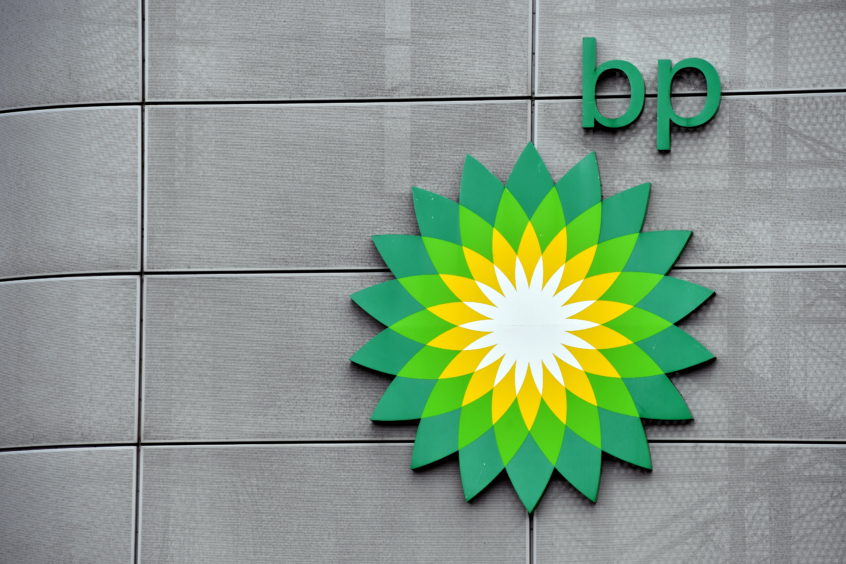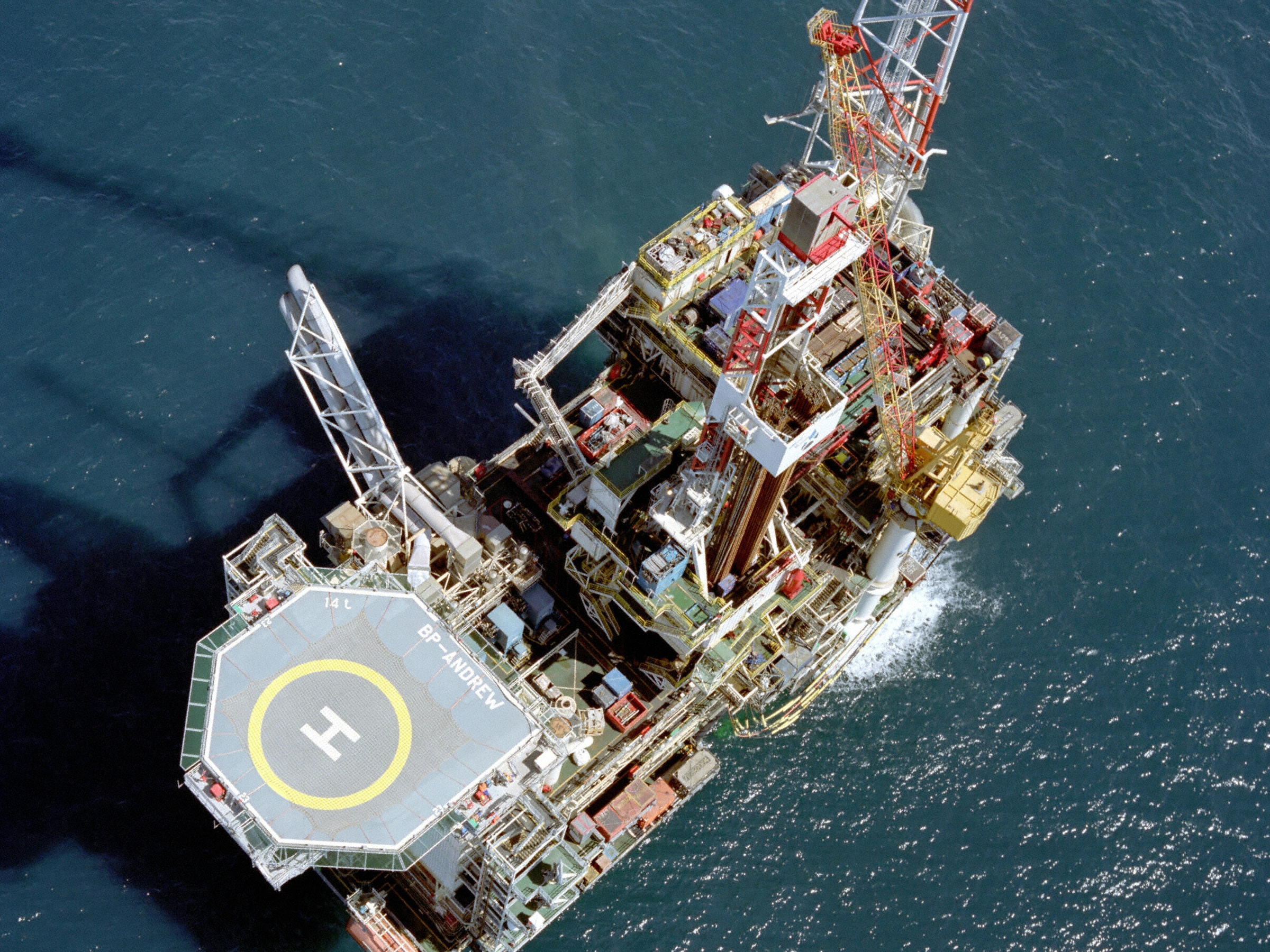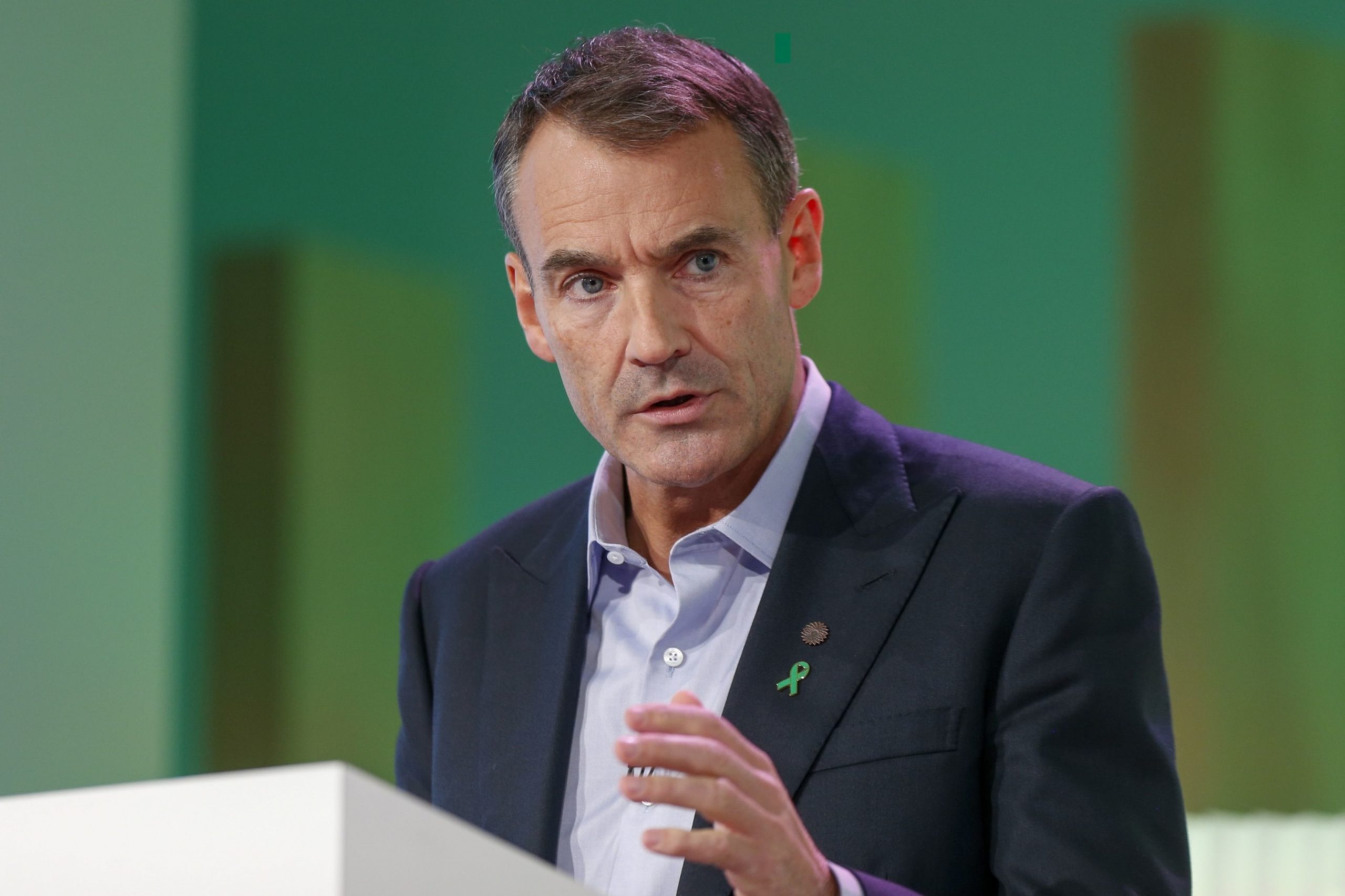
BP fell to pre-tax losses of £18 billion in 2020 as the energy giant’s balance sheet creaked under the weight of lower oil and gas prices.
London-listed BP had chalked up pre-tax profits of £6bn the previous year.
Revenues sank 35% to £135bn, and underlying replacement cost losses, a preferred performance measure at BP, totalled £4.2bn, against a surplus of £7.2bn in 2019.
Analysts said the results were worse than expected and laid bare the toll Covid-19 has taken on the businesses.
BP chief executive Bernard Looney said 2020 had been “tough” and unlike any other year.
But Mr Looney said he was optimistic about the future, in light of the vaccine rollouts and the actions BP has taken to implement its new strategy.
The full-year figures reflect the impact of a hefty second-quarter impairment charge of £7bn, related to lower commodity prices, and exploration write-offs totalling £1.3bn.
A row between Russia and Saudi Arabia led to a production surge at a time when the Covid-19 pandemic was slashing demand for fossil fuels.
This led to chronic oversupply and a huge slump in oil and gas prices which rocked supermajors like BP and Shell, which will report its full-year results on Thursday.
These business are also having to remodel themselves to show they are serious about helping countries battle climate change.
Sweeping changes and 10,000 job losses
At BP, Mr Looney has announced plans for sweeping changes since taking up the reins a year ago.
In June, the business revealed it would lower its global headcount by 10,000, with 2,000 of those redundancies falling in the UK.
The senior leadership team was reduced to 120 positions from 250 previously to help the company become more “nimble”.
Reuters reported last month that BP’s exploration team now numbers fewer than 100 people, compared to a high of more than 700 before Mr Looney’s tenure.
BP said this morning that more than half of the 10,000 people had left by year-end, resulting in “people-related costs” of £1bn.
The majority of those costs will be incurred in the first half of this year, which will result in an increase in net debts, from £28.5bn at the end of December.
Debts should start to fall in the second half, thanks partly to divestment proceeds, helping BP to reach its £26bn net debt target around fourth quarter of 2021.
Irishman Mr Looney said in August that BP would chop its dividend in half to free up cash for its transformation into an broad energy company.
BP’s oil and gas production will drop by 40% over the next decade, while its spending on low carbon technologies will soar tenfold to £3.8bn a year.
Upstream production in 2020 was 9.9% lower than in 2019, primarily due to divestments.
Last week, the business completed the £845m acquisition of 50% of the Empire and Beacon offshore wind projects on the US east coast from Equinor.
The firm’s share price has dropped to £2.67 from £4.84 a year ago, which may show investors are sceptical of BP’s transformation plans, though the price rout won’t have helped.
The company is also looking to sell £18.2bn worth of assets by 2025 and is expected to try to find a new buyer for its stakes in the Andrew cluster and Shearwater field in the UK North Sea.
Premier Oil agreed to buy the package last year, but the deal fell through when a reverse takeover with Chrysaor was announced.
The company sold £4bn worth of assets in 2020, including its petrochemicals business, to Ineos.
Divestment proceeds are expected to reach up to £4.4bn in 2021, weighted towards the second half.
Yesterday, BP announced it had struck a £1.9bn deal to sell a 20% working interest in Omani acreage to PTTEP, of Thailand.
Mr Looney has said BP’s oil and gas business would remain the “engine room” of the group for years to come.
BP’s UK North Sea division, described as “high quality” by the CEO, was boosted in November by first oil from the 30 million barrel Vorlich project, which was disrupted by Greenpeace activists in 2019.
The division, which will move to smaller premises by the end of this year, is currently led by Glaswegian Emeka Emembolu, who took over from Ariel Flores in July.
Mr Flores was promoted as part of BP’s management overhaul.
A miserable year – analysts
David Barclay, head of office at Brewin Dolphin Aberdeen, said: “BP was expected to post a significant loss for 2020, which is unsurprising given the many challenges the company – and the wider oil and gas sector – faced last year.
“However, today’s results are worse than consensus predictions anticipated, laying bare just how much of a toll Covid-19 has taken on its businesses.
“No doubt BP is in transition and, as this update shows, it will require a lot of financial headroom to manage itself through that process.
“Debt levels remain stubbornly high for a business that needs to invest, and will require further progress in asset sales to continue deleveraging.
“While BP transforming itself to remain relevant in a de-carbonised world is a positive move, there is still a delicate balancing act for the company to play in the months and years ahead, evolving its business whilst attempting to remain attractive to investors.”
Freetrade analyst David Kimberley said BP had endured a “miserable year” and warned the company’s situation wasn’t likely to get any easier in the years ahead.
Mr Kimberley said: “The problem for BP and the other oil majors is that they have to continue managing vast oil empires while constantly reminding shareholders that they’re on the cusp of a green energy revolution that will make them obsolete.
“BP chief Bernard Looney exemplified this last May when he said we may have already reached peak oil.
“That naturally spooks shareholders, many of whom probably remember the group’s ill-fated rebrand to ‘Beyond Petroleum’ back in 2000 and don’t have much faith in its current plans to reinvest in green energy sources.
“The trouble with this is that we’ve been told on several occasions that we’re about to reach peak oil, going back as far as 1970, and such an event is yet to materialise.
“Covid has undoubtedly had a dramatic impact on our lives but it hasn’t led to any major developments in renewable energy technology.
“So for all the claims that the virus has caused a seismic shift in energy consumption habits, oil is probably going to be with us for some time to come, even if its usage is ultimately heading for a terminal decline.
“In the meantime we can expect more of the same from BP. Lots of talk about green energy and peak oil but still see the overwhelming bulk of its revenues coming from hydrocarbons.”
Peter McNally, global sector lead for industrials, materials and energy at Third Bridge, said: “BP was able to drive enough costs out of the business to earn an underlying profit in both upstream and downstream segments, and net debt also ended 2020 lower.
“However, this all came at a cost–oil and gas production slumped to its lowest level in four years despite delivering 3 major projects in the final quarter of the year and the organic reserve replacement was just 78%.
“2021 does not appear off to a great start with January retail volumes down 20% versus the prior year, an acceleration from the 11% decline seen in Q4.”
Looney: Expect much better days in 2021
Mr Looney said: “2020 will forever be remembered for the pain and sadness caused by Covid-19. Lives were lost – livelihoods destroyed.
“Our sector was hit hard as well. Road and air travel are down, as are oil demand, prices and margins. It was also a pivotal year for the company.
“We launched a net zero ambition, set a new strategy to become an integrated energy company and created an offshore wind business in the US.
“We began reinventing BP – with nearly 10 thousand people leaving the company. We strengthened our finances – taking out costs and closing major divestments.
“And through all of this, the underlying operations of the company remained safe – one of our safest years – and reliable, and major new projects were brought on line.
“I appreciate our team’s commitment to deliver the energy the world needed and am grateful for the support we received from investors and the communities where we work.
“We expect much better days ahead for all of us in 2021.”
Murray Auchincloss, chief financial officer, added: “These results reflect a truly tough quarter, with a challenging price environment and COVID-19 related demand impacts.
“Nonetheless, we made strong progress in reducing net debt again, to $39 billion in the quarter.
“We remain on track to meet our target of $35 billion between the fourth quarter of 2021 and first quarter of 2022, which will trigger the start of share buybacks, subject to maintaining a strong investment grade credit rating.”
Recommended for you



